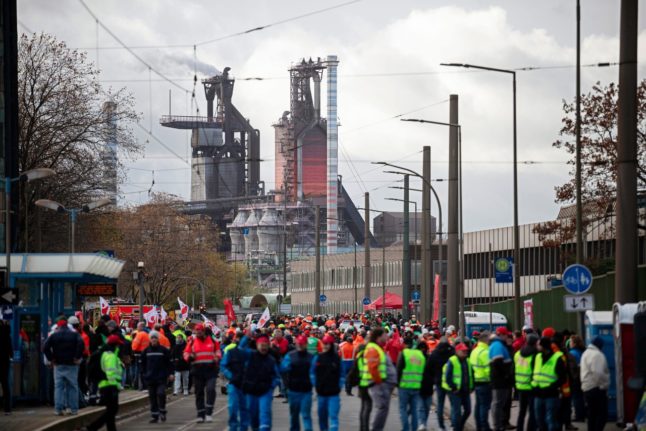Labour Day, which is celebrated on May 1st, is a public holiday throughout Germany. But this year it falls on a Sunday, meaning Germans will miss out on one of their ten or so public holidays of the year.
In fact, 2022 is not a great year for public holidays. New Year’s day was already lost to a weekend this year, while Christmas Day will also fall on a Sunday.
While the number of public holidays varies from federal state to federal state, what is true across the country is that ones that fall on the weekend are simply not replaced, something that politicians from Die Linke and the Greens say is unfair on workers.
“Every lost holiday means more stress and less urgently needed rest from the stresses of work and the pandemic,” Jan Korte, a senior member of Die Linke, told the Rheinische Post on Monday.
READ ALSO: How do Germany’s public holidays compare to other EU countries?
He added that the Left Party would take parliamentary action “to ensure that no more public holidays are cancelled in the future.”
Beate Müller-Gemmeke, the Green Party’s labour market expert, agreed that the Bundestag should have a debate about whether holidays that fall on a weekend can be replaced.work
“Of course it is annoying for employees when precisely Labour Day, the May 1st holiday, falls on a Sunday,” she said. “It is now time to discuss socially how holidays that fall on a Sunday can be made up, as is already the case in a number of countries.”
Polling conducted by YouGov last year found that roughly half of Germans supported replacing lost public holidays. Meanwhile, a snap Twitter poll by The Local found that more than 70 percent of readers supported the move.
According to the Die Linke party, over 80 countries around the globe have some form of compensation system for public holidays that fall on a weekend.
READ ALSO: Should Germany ensure workers get a day off for every public holiday?



 Please whitelist us to continue reading.
Please whitelist us to continue reading.
Agree, this is something the politicians should do!